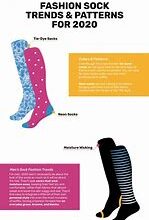Mathematics is a subject that many children find challenging and intimidating. However, there are various creative and interactive ways to engage young learners in this important field, such as through the use of poetry and problem-solving activities.
Using poetry as a tool to introduce mathematical concepts can make the subject more relatable and enjoyable for children. For example, reciting rhymes and memorizing specific verses can help children remember important mathematical formulas and patterns. This not only enhances their understanding of the subject but also builds their confidence in solving mathematical problems independently.
Problem-solving activities, on the other hand, help children develop critical thinking and analytical skills. By introducing math teasers and puzzles, children are encouraged to think outside the box and come up with innovative solutions. These activities also involve repetition, which is crucial for children’s learning and helps them improve their problem-solving abilities over time.
Implementing concrete examples and real-life situations in problem-solving activities can also make mathematics more tangible and relatable for children. For instance, using everyday objects like cups to measure and sort can help children understand concepts of measurement and geometry. This hands-on approach not only enhances their understanding but also provides them with a fun and educational experience.
Engaging children in mathematics through poetry and problem-solving activities not only makes learning enjoyable but also enhances their overall mathematical development. These activities encourage children to explore, analyze, and critically think about mathematical concepts, making them independent and confident learners. By building a strong foundation in mathematics from a young age, children are more likely to excel in the subject later in their academic journey.
In conclusion, incorporating poetry and problem-solving activities into mathematics education is an effective way to engage young learners and enhance their understanding of the subject. By providing educational and interactive experiences, children can build crucial skills that will benefit them in their academic and everyday lives. So let’s embrace the power of poetry and problem-solving to make mathematics a more exciting and accessible subject for all children!
- Explore Math Concepts Creatively
- Benefits for Early Learners
- Engaging Problem-Solving Activities
- Counting and Number Recognition
- Shapes and Patterns
- Measurement and Comparisons
- Importance of Math in Early Childhood Education
- Building a Strong Foundation for Future Learning
- Enhancing Critical Thinking Skills
Explore Math Concepts Creatively
Oftentimes, introducing mathematical concepts to young children can be a challenging task. However, by incorporating creative activities such as poetry and problem-solving, children can have a better understanding of the mathematical world.
Furthermore, each activity provides opportunities for children to explore various mathematical perspectives and concepts. Instead of simply learning formulas and numerical recognition, children can engage in activities that encourage conceptual understanding and problem-solving skills.
One way to incorporate poetry into math activities is by introducing patterns. For example, reciting a poem with a repeating pattern can help children recognize and create their own patterns. This can later lead to an understanding of more complex patterns in geometry, measurement, and other math concepts.
Another activity that enhances learning is through the use of concrete objects for measurement. By comparing the lengths of different objects, children can improve their understanding of measurement and develop skills towards making comparisons.
Visual aids, such as flashcards and examples, can also be used to help learners discover the benefits of problem-solving and memorization. By using visual representations, children can easily understand and remember math concepts.
In addition, incorporating poetry and problem-solving activities helps children develop numeracy skills and expand their knowledge in various mathematical subjects. By exploring math concepts creatively, children are encouraged to think critically and build innovative solutions.
By engaging young children in poetry and problem-solving activities, they can develop a strong foundation in math, leading to improved skills in geometry, measurement, and other important subject areas.
Benefits for Early Learners

Engaging young children in mathematics through poetry and problem-solving activities has numerous benefits for early learners. These activities help children discover the world of numbers, formulas, and measurement in a fun and creative way. They involve children in interactive and hands-on activities that will improve their mathematical thinking and problem-solving skills.
One of the key benefits of using poetry and problem-solving activities is that it helps build a strong foundation of numeracy skills. By introducing math concepts through songs, riddles, and other innovative activities, children are able to develop a concrete understanding of mathematical concepts. This understanding will later support their ability to solve more advanced math problems.
The use of poetry and problem-solving activities also helps children improve their language skills. Through reciting and analyzing poems, children develop their vocabulary and language awareness. This language development not only benefits their mathematical learning but also helps them in other areas of life.
Furthermore, engaging young children in mathematics through poetry and problem-solving activities helps build their confidence and independence. By actively participating in these activities, children feel more comfortable and confident in their ability to solve mathematical problems. This confidence and independence will transfer into other areas of their learning as well.
In addition, using poetry and problem-solving activities helps children develop their creativity and critical thinking skills. Children are encouraged to think outside the box and find creative solutions to math problems. This type of thinking is important for later in their educational journey when they are faced with more complex math problems.
Engaging young children in mathematics through poetry and problem-solving activities also provides them with opportunities to measure and analyze different aspects of the world around them. This hands-on experience helps them understand concepts such as length, weight, and volume while also developing their measurement skills.
In conclusion, introducing young children to mathematics through poetry and problem-solving activities is an important and beneficial educational practice. It helps them build a strong foundation of numeracy skills, improves their language and critical thinking abilities, and engages them in hands-on mathematical activities. These activities provide a fun and innovative way for young learners to discover and explore the world of mathematics.
Engaging Problem-Solving Activities

Problem-solving activities are a fantastic way to engage young children in mathematics and develop their critical thinking skills. By providing opportunities for children to find solutions to mathematical problems, you are building their problem-solving skills and helping them to become more confident and independent thinkers.
One fun activity that involves problem-solving is using rulers to measure objects. This activity not only enhances a child’s measurement skills but also introduces them to the foundational concepts of length and weight. They can compare and analyze the different lengths of objects and develop an awareness of how weight can affect the size or length of an object compared to another.
Another engaging problem-solving activity is using flashcards to boost a child’s skills in arithmetic, such as addition and subtraction. By creating simple math problems using the flashcards, children can repeatedly practice solving them, which enhances their math skills and boosts their confidence in tackling more advanced math problems later on.
Sorting activities are also great for engaging children in problem-solving. By asking them to sort objects based on specific attributes, such as color, size, or shape, children learn how to analyze and categorize information. This activity not only enhances their logical thinking skills but also develops their understanding of sorting and classifying concepts.
Engaging children in problem-solving activities through story problems is another effective way to enhance their mathematical thinking. By presenting everyday scenarios through stories, children are inspired to think critically and apply their math skills to find solutions. This activity allows children to connect mathematics to the real world and enables them to see how mathematical concepts can be used in practical situations.
Introducing children to basic geometry concepts through problem-solving activities can also be an exciting way to engage them in mathematics. Activities that involve comparing and analyzing different shapes and their properties help children develop their spatial reasoning skills. They learn to recognize and classify shapes based on their attributes and understand how shapes can be transformed or combined to create new ones.
In conclusion, engaging young children in problem-solving activities offers numerous benefits for their mathematical development. It helps build their critical thinking and problem-solving skills, enhances their mathematical awareness and understanding, and boosts their confidence and achievements in mathematics. By providing opportunities for children to engage in problem-solving activities, we are empowering them to become independent and capable mathematicians who can confidently tackle various mathematical problems in the future.
Counting and Number Recognition

In the educational and life skills development of young children, the ability to count and recognize numbers is crucial. Introducing counting and number recognition through poetry and problem-solving activities not only makes learning enjoyable, but also provides concrete examples and visual aids to enhance understanding.
By incorporating patterns, rhymes, and verses into counting activities, children are likely to improve their ability to recognize and recite numbers. This helps them memorize number sequences and enhances their vocabulary related to numbers.
Problem-solving activities such as number games and critical thinking teasers allow children to practice comparing and sorting numbers. This leads to a better understanding of numbers and their relationships. Additionally, introducing activities that involve measuring, addition, and subtraction helps enhance their problem-solving skills and improves their ability to solve mathematical problems.
Incorporating poetry into math activities also helps children develop a deeper understanding of numbers. Poetry provides a different perspective on numbers and allows children to think critically about the concepts behind them. This is especially important for visual learners, as it helps them visualize numbers and their associated representations.
Through these activities, children will not only learn to count and recognize numbers, but also develop the skills and confidence necessary to succeed in more complex math concepts later on. They will be equipped with appropriate strategies to compare, measure, and solve problems involving numbers.
The use of poetry in teaching counting and number recognition can also improve children’s overall learning experience. By making math more enjoyable and engaging, children are more likely to stay focused and motivated while learning. This can enhance their long-term retention of mathematical concepts and their success in future math endeavors.
Shapes and Patterns
The development of mathematical skills in young children is essential for their learning. One way to enhance their conceptual understanding is through engaging activities that combine mathematical concepts with creative elements such as poetry and problem-solving. Shapes and patterns are foundational concepts that can be easily taught through rhymes, reading, and visual aids.
Introducing children to different shapes and patterns through engaging activities helps to improve their spatial awareness and recognition. For example, using rhymes and repetition in poems can help children become more confident in recognizing and naming shapes. This practice also encourages children to create their own shapes and patterns, thus boosting their creativity and problem-solving skills.
Games and activities that involve shapes and patterns are often enjoyable for young children. When playing games, children are able to practice identifying and comparing shapes and patterns, contributing to their understanding of sequence and thinking skills. For example, children can compare the length or weight of different objects and find shapes in their surroundings.
One way to engage children in shapes and patterns is through the use of riddles. Riddles challenge children to think critically and apply their knowledge of shapes and patterns to find the solution. For example, a riddle may ask children to identify a shape with four sides and four equal angles. This type of activity not only encourages children to think creatively, but also enhances their problem-solving and critical thinking skills.
In conclusion, introducing shapes and patterns to young children through poetry, problem-solving, and games is an effective way to enhance their learning and conceptual understanding. Activities that involve shapes and patterns help children to improve their spatial awareness, visual recognition, and critical thinking skills. By engaging children in enjoyable and interactive activities, they are more likely to succeed in developing foundational skills in mathematics.
Measurement and Comparisons
Measurement and comparisons are important concepts in mathematics that children need to understand from a young age. Engaging young learners in measurement activities can be done through a variety of creative methods, such as incorporating poetry and problem-solving. By combining these elements together, rhymes and songs can enhance their learning and make it more enjoyable.
Measuring is a fundamental skill that children will need throughout their lives. When they understand how to measure and compare quantities, it will help them make sense of the world around them. For example, they can use rulers to measure the length of objects or compare the weight of different objects placed on a balance scale.
One way to engage children in measuring and comparing is through interactive games and activities. Flashcards with different measurements can be created to help children practice comparing lengths, weights, or sizes. Another activity could involve having children sort objects into different categories based on their measurements.
By engaging children in measurement activities, they will not only build their conceptual understanding of the subject but also develop their numeracy skills. This is because measurement and comparisons involve thinking about numbers and quantities in a concrete way.
Engaging children in measurement activities through poetry can also have many benefits. For example, using rhymes and songs allows for repetition, which can help children practice and reinforce their understanding. Additionally, incorporating poetry into math lessons supports the development of critical thinking skills and creativity.
Using poetry in math lessons also helps build social skills and supports the development of learners’ perspectives. By working together in groups or pairs, children can explore and discover different ways of measuring and comparing. This can enhance their understanding of the subject and open their minds to different approaches.
In conclusion, measurement and comparisons are important mathematical concepts that children, aged from a young age, need to understand. Engaging them in these activities through poetry and problem-solving can improve their mathematical abilities and numeracy skills. By incorporating rhymes, poems, and songs, children can have a more enjoyable and interactive learning experience. Measurement and comparisons not only help children succeed in math but also come to understand and appreciate its role in everyday life.
- Measurement and comparisons are important mathematical concepts.
- Engaging children in measurement activities helps build their conceptual understanding.
- Using poetry and rhymes enhances learning and makes it more enjoyable.
- Measuring and comparing objects helps children understand the world around them.
- Measurement activities can involve games, flashcards, and sorting objects.
- Repetition and practice are key to mastering measurement and comparisons.
- Measurement and comparisons can improve numeracy skills and critical thinking.
- Collaborative activities support social and creative development.
- Measurement and comparisons are applicable to everyday life.
Importance of Math in Early Childhood Education
In early childhood education, math plays a crucial role in the overall development of children. It helps them understand and engage with the world around them, develop problem-solving skills, and build a strong foundation for future math achievements.
Introducing math concepts to young children through reading, songs, and poetry helps them recognize and understand patterns, develop thinking skills, and engage in problem-solving activities. For example, sorting objects by color or shape helps children recognize and explore different patterns and characteristics.
Math is not just about numbers and formulas; it is a language that helps children understand and communicate specific ideas and perspectives. Through practicing math, children build their confidence, boost their visual thinking skills, and develop their ability to engage with and understand the world in which they live. It also teaches them to think critically and logically, as they learn to think of solutions to problems they encounter.
Songs, rhymes, and riddles involving numbers and math concepts can engage young children’s attention and help them memorize important information. For example, reciting a counting song helps children learn number recognition and sequence, while solving riddles can challenge their problem-solving skills.
Math also helps children develop skills such as understanding spatial relations and measurement. Exploring concepts like length, weight, and subtraction aids in their understanding of the physical world and its properties. This understanding builds a foundation for later achievements in subjects like science and engineering.
By using math in early childhood education, children will be equipped with the necessary skills and knowledge to tackle more complex math problems as they progress through school. It also helps them develop a positive attitude towards math, as they see its relevance and benefits in their daily lives.
Overall, math involvement in early childhood education not only helps children understand and engage with the world around them, but also builds their thinking and problem-solving abilities. It presents math as a fun and challenging subject, boosting their confidence and preparing them for future academic success.
Building a Strong Foundation for Future Learning

Engaging young children in mathematics through poetry and problem-solving activities can make them aware of the everyday presence of math in their lives. This helps to build a strong foundation for future learning by introducing them to important concepts and skills at an early age.
One aspect of mathematics that can easily be introduced through poetry and problem-solving is geometry. Sorting and classifying objects based on their shape and size is a fun way for children to learn about different geometric concepts. Furthermore, incorporating rhymes and story-telling into math lessons enhances critical thinking skills and supports the development of creativity.
Games and activities that involve problem-solving can also help children to understand and apply mathematical formulas. Through these activities, learners are able to build their foundational knowledge of math, which will come in handy when they encounter more complex math problems in the future.
By providing children with examples of how math can be applied to the real world, they are able to see the relevance of the subject and are more likely to engage with it. Simple challenges and activities that require them to use their math skills help to develop their problem-solving abilities and build their confidence in the subject.
It is crucial to engage children in math at a young age as this will help them to succeed in their future studies. Introducing math concepts through poetry, games, and problem-solving activities can help children to remember important formulas and patterns, and develop a love for the subject. Additionally, engaging in math activities can enhance children’s creativity and support their independent thinking skills.
By presenting math in a fun and engaging way, children are more likely to enjoy learning the subject and are able to come up with their own creative solutions to mathematical problems. Working in groups or independently, children can engage in reading, reciting, and solving math problems, which helps them to develop critical thinking skills and a deeper understanding of the subject.
In conclusion, incorporating poetry and problem-solving activities into math lessons can help to build a strong foundation for future learning. By introducing math concepts through visual aids, patterns, and real-world examples, children are able to understand and engage with the subject more easily. Encouraging creativity and independent thinking through math games and activities supports the development of critical thinking skills and prepares children for future math challenges.
Enhancing Critical Thinking Skills
Engaging young children in mathematics through poetry and problem-solving activities can help enhance their critical thinking skills. These activities encourage children to think critically and apply mathematical concepts to real-life situations. By incorporating problem-solving activities into their learning, children can develop their ability to think critically and problem solve.
One way to enhance critical thinking skills is to introduce measurement activities. In these activities, children are encouraged to think critically about the different ways objects can be measured and how to compare different measurements. For example, learners can explore the concept of measurement by using rulers or measuring cups to compare the lengths or volumes of different objects. This type of activity requires learners to think critically and use mathematical processes to come up with solutions.
Another way to enhance critical thinking skills is to present learners with sequence and pattern problems. These problems require learners to think critically about the order and structure of a given sequence or pattern. By engaging in sequence and pattern problems, learners can develop their ability to think critically and find patterns in everyday objects and events.
Incorporating creative games and activities into the learning process can also enhance critical thinking skills. These activities provide children with the opportunity to think critically and use their problem-solving skills in a fun and engaging way. For example, learners can engage in games that require them to think critically and solve puzzles or challenges. This approach towards learning enhances critical thinking skills by encouraging learners to think independently and use their problem-solving skills.
Using poetry to engage learners in mathematics can also enhance critical thinking skills. Poetry often presents mathematical concepts in a creative and engaging way, which can help learners understand and practice mathematical concepts in a different context. For example, learners can engage with poetry that incorporates mathematical concepts and encourages them to think critically about the language and quantities used in the poem.
In conclusion, enhancing critical thinking skills in young children through mathematics can have many benefits. It aids in their conceptual development, provides them with foundational skills for future learning, and supports their social and emotional development. By engaging children in creative problem-solving activities and incorporating poetry and games into their mathematics learning, educators can help them explore, discover, and enhance their critical thinking skills.



